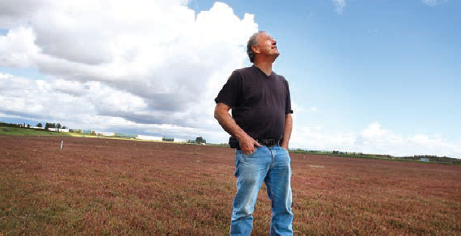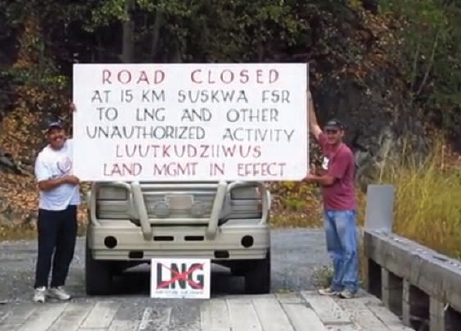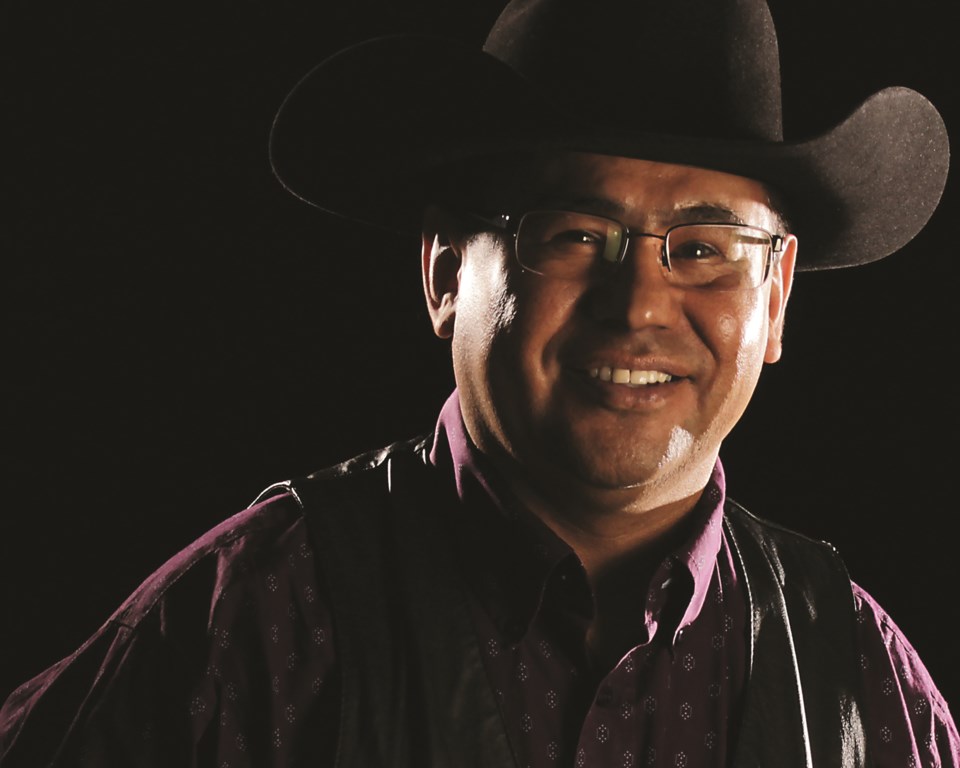LOOK BACK: 2015 was a roller-coaster year for B.C.’s companies and entrepreneurs in all sectors of the economy as chronicled in BIV’s summary of the year in business. It began with U.S. retail giant Target pulling the plug on its Canadian operations and continued with an ever-lengthening list of bottom-line challenges generated by plunging energy prices, a downbound dollar and quirky weather
Warming trend brings bitter harvest to farmers
In 2014, cranberry farmers in the Lower Mainland lost around $10 million worth of crops when unseasonably warm weather in January and February, followed by a cold snap, damaged plants.
“Every year it seems like we have an unusual spring,” said Bruce May, a cranberry farmer in Delta. “We used to have more distinct patterns that were more beneficial to our crops.”
Although the damage hasn’t been as bad this year, May observed the same pattern of unusually warm late-winter temperatures followed by a spring cold snap.

Farmers in the Fraser Valley, ranchers in the Cariboo and orchardists in the Interior are all feeling the environmental and financial effects of changing weather patterns.
Perhaps 10 years ago, half of the farmers orchardist Greg Norton knows would have been skeptical that the climate is changing. That’s changed.
“This isn’t a blip in the weather,” Norton said. “There will be changes, but how do we adapt? That’s difficult.”
B.C. medical marijuana producers test legal waters in U.S. recreational market
With a U.S. market that dwarfs that of his native Canada, Terry Booth doesn’t see why companies north of the border can’t capitalize on the legal weed available to consumers in states like Alaska, Washington and Colorado.
Although recreational pot is not legal in Canada, Booth’s company, Aurora Cannabis, announced April 21 it has entered a partnership to build a facility in Bellingham to produce and process pot for both medicinal and recreational purposes, and lease the space to Washington state licence holders.
But can a Canadian company bypass federal laws and profit off an industry that’s legal in one jurisdiction but not in the jurisdiction where it’s headquartered?
Booth said Aurora has consulted extensively with Washington state lawyers to make sure everything is on the level.
But B.C. lawyer Kirk Tousaw, who advocates modernizing Canada’s cannabis policies, said he doesn’t believe there is an established legal answer just yet.

What will Alberta’s NDP victory mean for B.C.?
They’re calling it the orange crush.
Alberta NDP Leader Rachel Notley handily defeated Progressive Conservative Jim Prentice on May 5. Her party won the majority of seats in the province’s legislature, ending a 44-year political dynasty.
Some in British Columbia are ecstatic about the win. Others are cautioning that the upset could have grave implications for both Alberta’s and B.C.’s economies.

“We’re just elated, to be honest with you,” said Art Sterritt, director of Coastal First Nations. The group has been fighting Enbridge’s proposed Northern Gateway pipeline project, which would carry bitumen from Alberta’s oilsands across northern B.C. and terminate in Kitimat.
Greg D’Avignon, president and CEO of the Business Council of British Columbia, is concerned that Notley’s promise to raise corporate income tax as well as taxes on high-income earners will dampen Alberta’s already shaky economy.
“Companies, when they make investment decisions, look at a myriad of things and corporate tax is one of them,” he said.
Lax Kw’alaams Band votes against $1.1 billion LNG offer from Petronas

From the Petronas Towers in Kuala Lumpur, what unfolded in B.C. last week must have looked strange.
While the Lax Kw’alaams Band was voting against a $1.1 billion offer of cash and land to support Petronas’ $11 billion Pacific NorthWest LNG project in Prince Rupert, some members were reportedly giving a tentative thumbs-up to the Eagle Spirit Energy refined oil pipeline proposal.
Following a series of community votes that rejected the Petronas offer (plus $108 million worth of land from the province), the Lax Kw’alaams issued a statement affirming its support for liquefied natural gas in general – just not on Lelu Island, due to its potential impact on Flora Bank in the Skeena River estuary.
The vote raises a number of questions, not the least of which is whether Petronas, which has yet to make a final investment decision, might cut its losses if First Nations mount an all-out battle.
Profile of Roger William, chief, Xeni Gwet'In First Nation

Photo: Rob Kruyt
"The Ministry of Forests did a presentation that they may be logging out Nemiah and, whether we liked it or not, it probably would happen. There was no consultation. That stuck in my head."




